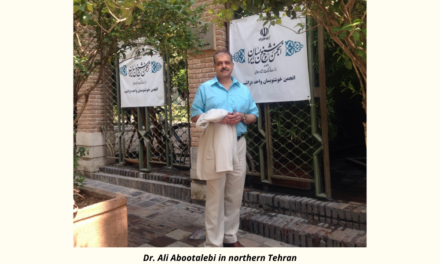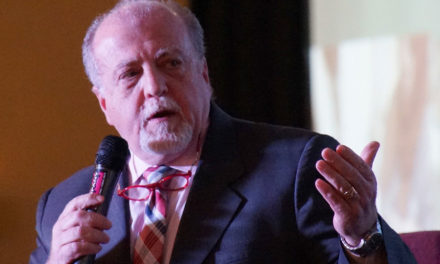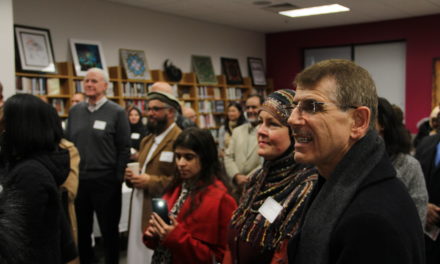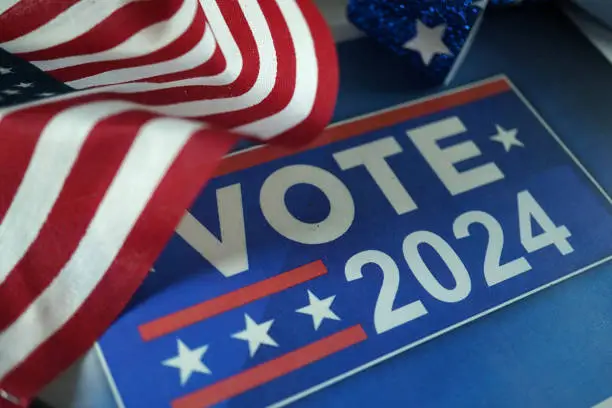
If you are one of the almost 13,500 Muslims in Wisconsin in one of the voter demographic databases used by political campaigns and organizations, perhaps you just received the 2023 Wisconsin Muslim Survey via email or social media, or a phone call from Wisconsin Muslim Civic Alliance.
Should you spend the 10 minutes it takes to fill out the survey or complete it over the phone? Is it beneficial to you? Your family? Your community? And how did you end up in that database, anyway?
To answer those questions, the Wisconsin Muslim Journal interviewed some of the people responsible for the survey and an expert on the efficacy of political information, media use and civic participation.
Part of a three-pronged effort
The survey, which launched a week ago, is one of three ways the Wisconsin Muslim Civic Alliance is preparing for the 2024 election, WMCA executive director Wassim Malas said in an interview this week.
It is WMCA’s tool for understanding the positions of Wisconsin’s diverse Muslim community. “WMCA wants to ensure the voices of Wisconsin’s Muslim community are heard by policymakers.”
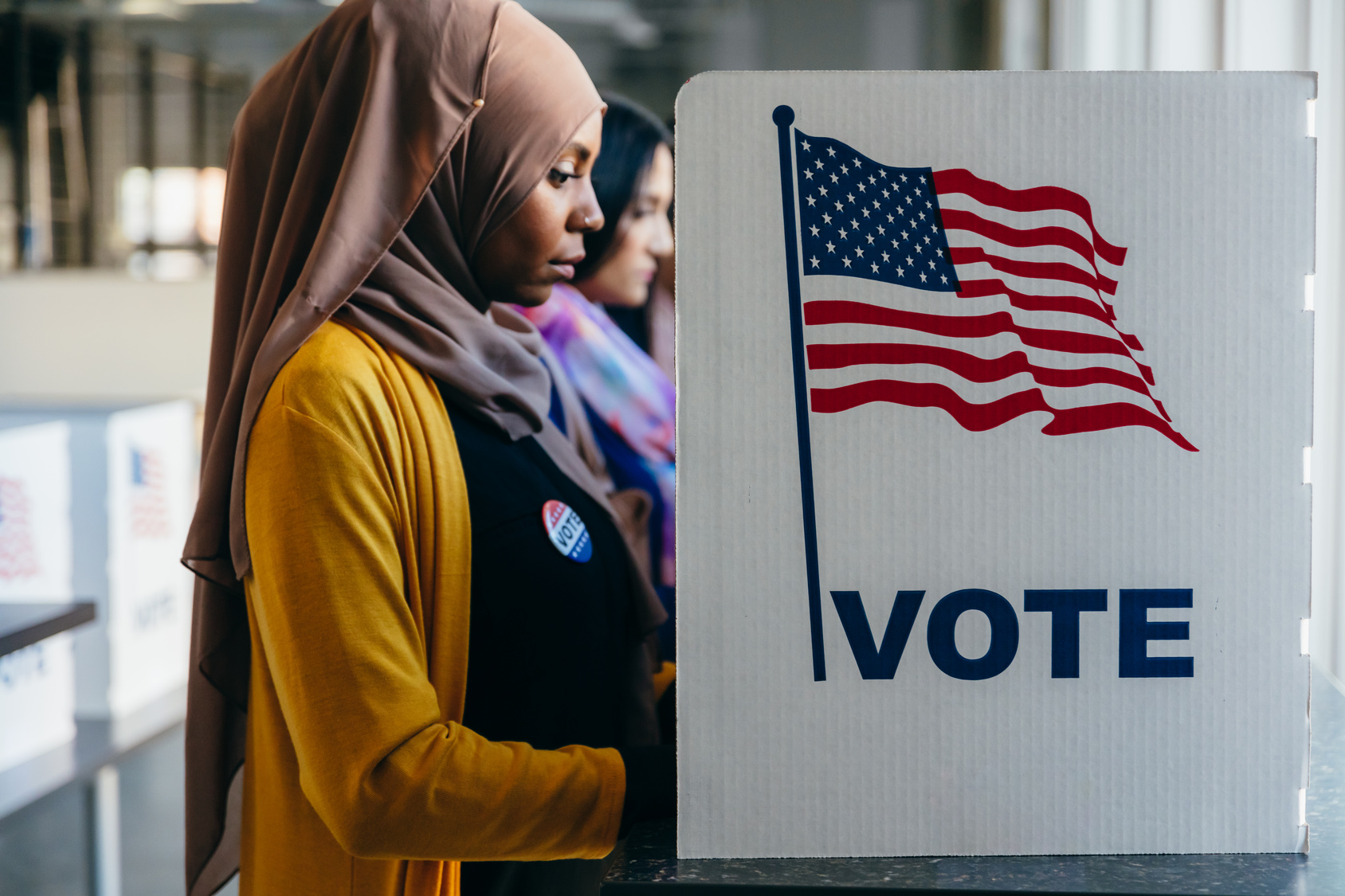
Milwaukee Muslim Women’s Coalition president Janan Najeeb founded the WMCA in 2019 to empower the Muslim community and its allies in civics, democracy and related issues, as well as to encourage participation in the electoral process. In its first four years, it held candidate forums, endorsed candidates, conducted national fundraisers and engaged with elected officials across the state on issues. It also has worked on identifying and reaching out to Wisconsin Muslims to encourage civic engagement, including voting and running for office. It aims to advance Muslim rights at the local, state and federal levels.
“When Sister Janan founded the WMCA, it was one of the best things anybody could have done for our community,” Malas said.
In preparation for the 2024 elections, WMCA is working on three foundational fronts: cleaning the Muslim voter database, surveying Wisconsin Muslims about their positions and concerns, and building a relational organizing network, he said.
Done effectively, these steps can increase Muslim political clout in Wisconsin and ensure better representation of Muslim perspectives in local, state and national politics, said Marquette University Associate Professor Sumana Chattopadhyay, Ph.D., who teaches graduate courses on political communication, and conducts research about political campaign strategies and digital media, among other topics.
Why it matters
Civic engagement absolutely matters in so many ways, Dr. Chattopadhyay said. “Our interests being represented can only happen if we are actually paying attention to who is representing us.
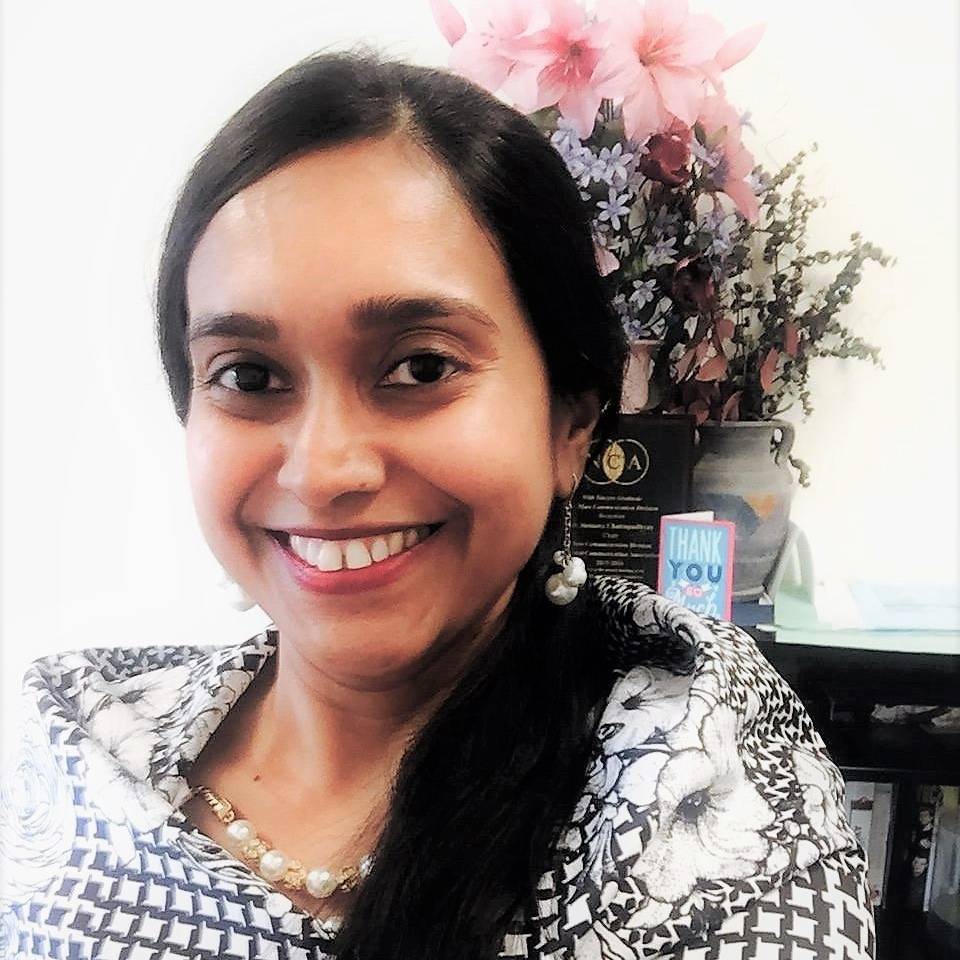
Sumana Chattopadhyay, Ph.D.
“My message on Day One to my graduate students is that politics matters,” she said. “When people say they don’t care about politics, I tell them that is either the most ignorant statement to make or the most privileged.
“Being in the polling booth will make a difference. Without it, a democracy can’t function and your interests may not be represented. We need to know that without taking a stand, we are going to lose some major freedoms or protections.
“If Muslims themselves or their allies are not represented in politics, they miss the opportunity to have people understand who they are and to correct a lot of stereotypes,” she added. “It’s also going to give us the ability to choose the people who represent us. Not everybody running for office is tolerant and understanding, or cares about us,” she said.
Chattopadhyay noted the importance of civic engagement for South Asian and Chinese Americans when they became targets of hate during and after the COVID-19 pandemic. “With hate crimes on the rise in the U.S., it was important that they already had allies who would advocate for them. This would not happen in isolation.”
Many Wisconsin Muslims are already politically active, said Gabriella Suliga, a digital and organizing consultant working with WMCA since 2020. “We have a lot of sway, especially in local elections. We want to make sure that members of the Muslim community know where candidates stand on different issues. WMCA does this by bringing candidates to speak directly to our membership. We make those events public so anyone can join in. We want to make sure that folks who have never voted in the past are aware of this important election that is coming up next year.
“There’s a big national eye on Wisconsin,” she added. “In recent years, Wisconsin has played a very big role in national politics and the Muslim voting block plays a critical role in that.”
A database of Muslim voters
When Suliga ran to represent District 13 in the Wisconsin Assembly before the pandemic, like other candidates and political parties, she gained access to a paid service that offers a database of voter demographics. Campaigns, political parties and organizations use these databases to target specific audiences.
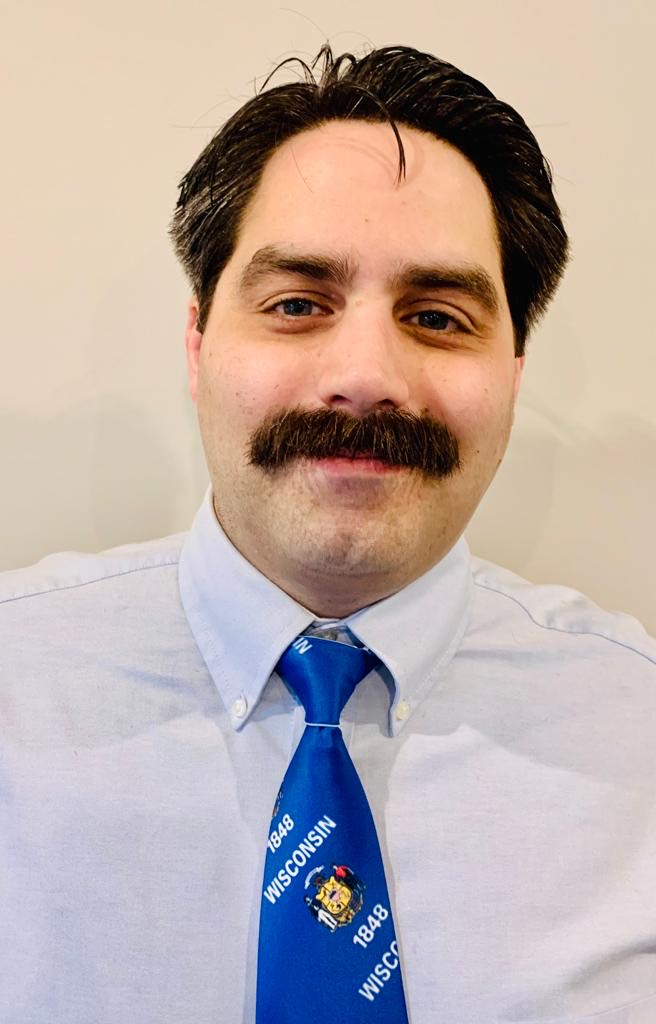
Wisconsin Muslim Civic Alliance executive director Wassim Malas
WMCA is using one of these databases to identify Muslim voters throughout Wisconsin. However, it relies primarily on first and last names to identify Muslims, Malas explained. “If someone has an Arabic or Muslim name, they or the household will be tagged as Muslim.”
For the past three years, WMCA has been making phone calls to confirm that the people identified in the database as Muslims actually are Muslims. This will help the organization in two ways: 1) to be able to share information with Muslims across the state and 2) to build political power, he said.
“In areas where there is a relatively high Muslim minority, like Milwaukee’s Southside, knowing there are a large number of Muslim voters would definitely help in local elections,” he said. “The power of our Muslim community is very similar to the power of the Jewish community in that the numbers are not large but the people are very educated, the community is organized and resources are used in an effective way.
“We have a growing number of Muslims. There’s no doubt about that. But the power of our influence is in our ability to communicate with different organizations and to build allegiances and alliances with each other within our faith and with other vulnerable groups.”
Suliga added: “We are nonpartisan. Our focus is civic engagement. We want folks to be registered. We want folks to vote regardless of what party affiliation they have and what issues they care about. We want folks to just use their power and their voice to vote. In order to be able to reach those folks, we have to know who they are.”
The new survey will also help clean up the database, she said. The first questions on the survey determine the respondent’s eligibility to be included. They are asked to confirm that they are over 18 years old, reside full-time in Wisconsin and are Muslim.
Surveying Wisconsin’s Muslims
“When people ask me what this survey is, I explain it is a historic survey we are conducting to get Wisconsin Muslims’ sense on various political issues,” Suliga said. “A lot of the questions dive into the respondent’s identities and experiences of just living in Wisconsin as a person of Muslim faith.
“We’ve translated the survey into seven different languages, which we’re really proud to offer,” she said. “That’s part of our proactive approach to get a diverse sample of respondents.”
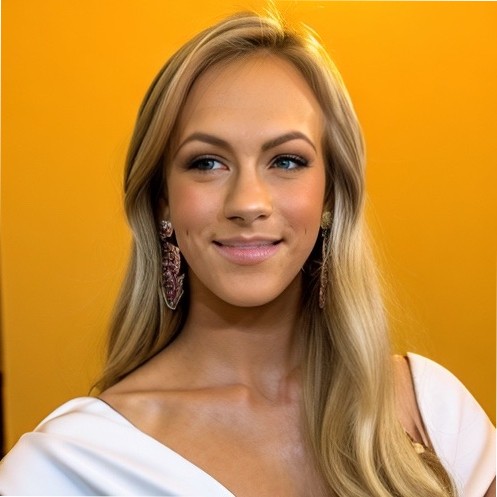
Gabriella Suliga, WMCA consultant
“At WMCA, we say we are the political voice of the Wisconsin Muslim community, and in order to serve as that political voice, we have to get a good understanding of what that collective voice is. This survey will give us a really good idea of where people stand on different issues.”
Where do Wisconsin Muslims stand on abortion? Capital punishment? LGBTQ+ rights? Gun control? “Our community is full of very intelligent people and they have different opinions,” Malas noted. He expects the survey results will spark discussions and help the organization identify “what issues we should be focusing on.”
The results will be discussed in WMCA among its leadership and members and used for planning. “It’s important that everybody is onboard so that we can reflect your ideas. It asks questions you won’t always hear discussed in the mosque and creates a confidential forum where you can speak freely. Some of the issues may feel a bit taboo to speak about or are sensitive. And I believe by answering you will be doing a good deed.”
If you’d like to participate in the survey, you will find it at this link.
Malas and Suliga emphasized that the survey is completely confidential. “No identifiable data is tied to your responses or linked back to the database,” Suliga explained. “We don’t track IP addresses from any device you are using. We don’t ask for your name or address. It is 100% anonymous.” Likewise, when Suliga takes the survey information over the phone, “none of that is connected back to the database.
“We use a platform called Typeform. I did a lot of research on different survey platforms and chose this one because it is very user friendly and has a big security component. Typeform’s security protocols aligned with our mission to keep the survey as secure as possible.
“And if you are not comfortable answering any question, you can skip it,” she added.
The results of the survey will be tabulated and analyzed, then used to inform and guide WMCA. In addition, it can be used “to inform candidates and elected officials who their Muslim constituents are and letting them know what matters to them.”
Being able to inform candidates and public officials about the numbers and views of Muslims in their district “absolutely gives a group political clout, especially if they are concentrated in that zip code,” Chattopadhyay said. “When you are considered an active voter base, politicians will reach out and target that community because they know your vote will matter.”
Building a relational organizing network
To encourage engagement from Wisconsin Muslims, WMCA is implementing relational organizing, Malas said. “We are trying to get people from outside Milwaukee and Madison to help us reach out, especially if they are community leaders.”
Relational organizing basically focuses on peer-to-peer texting, phone calls or emails between friends and family. WMCA is encouraging people who would like to help build this communication network to volunteer. Training will be provided, Suliga said.
Those interested in volunteering to help with relational organizing can email Malas at wassim@wisconsinmuslimcivicalliance.org, he noted.
“Relational organizing happens a lot in political parties,” Chattopadhyay said. “People will talk to their friends to endorse candidates and encourage them to vote. It’s so much more powerful than having a random stranger reach out to you.”
Creating political engagement
After hearing about WMCA’s strategies and plans, Chattopayhyay noted that WMCA’s multiple approaches can help “create greater activism in the political sphere.”
The survey may help introduce WMCA to individuals who aren’t familiar with it. At the same time, events like candidate forums and social media campaigns develop name recognition, making it more likely individuals will participate in the survey. Someone just learning about WMCA may ask about more resources and opportunities the organization offers if they don’t know where to start. Some people may choose to get involved, she said.
Having a voice locally and in Wisconsin matters nationally as well, Chattopadhyay noted. “In battleground states (like Wisconsin), you have an opportunity to showcase your issues and they get more attention. You have a better chance of being heard.”
